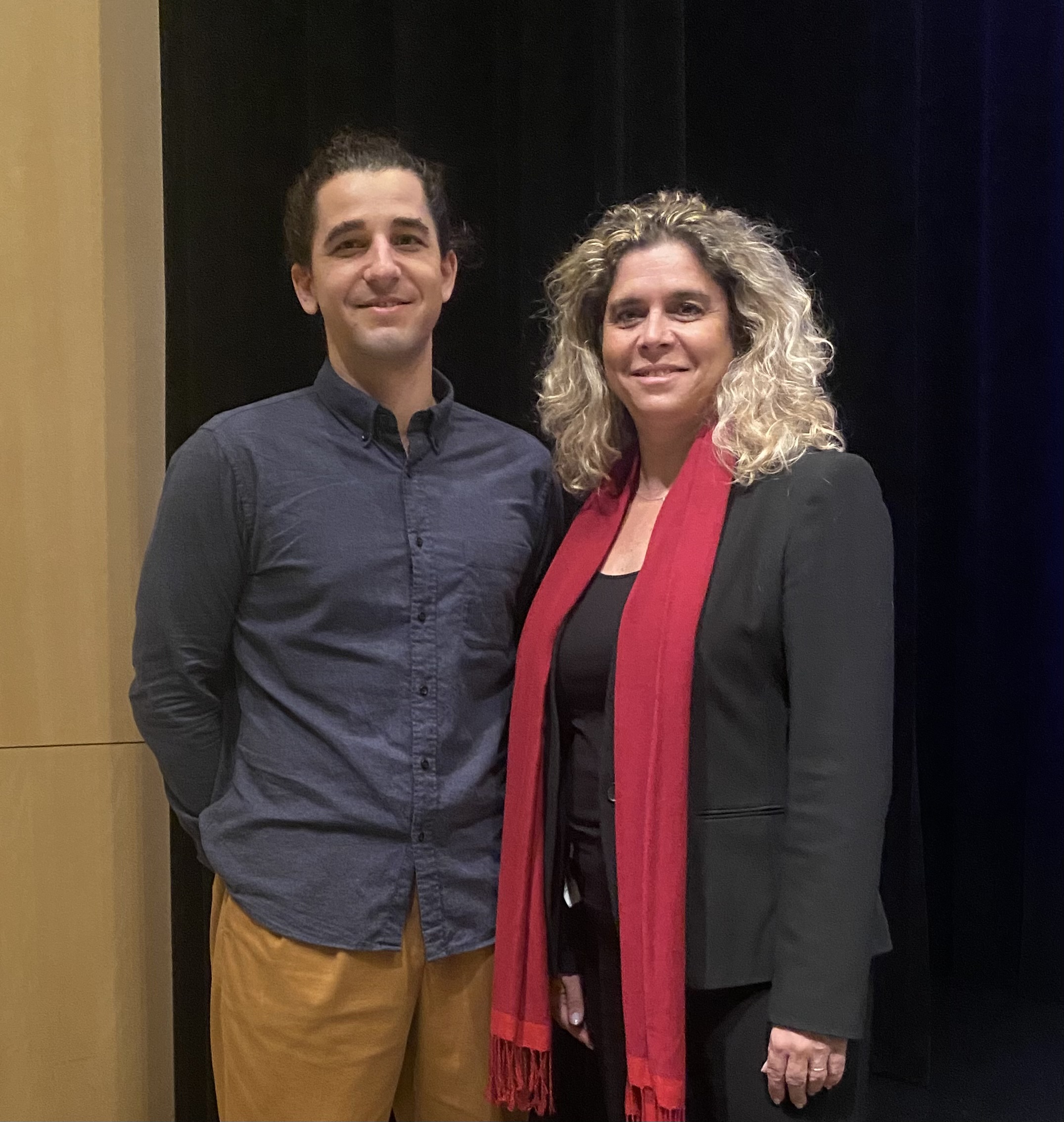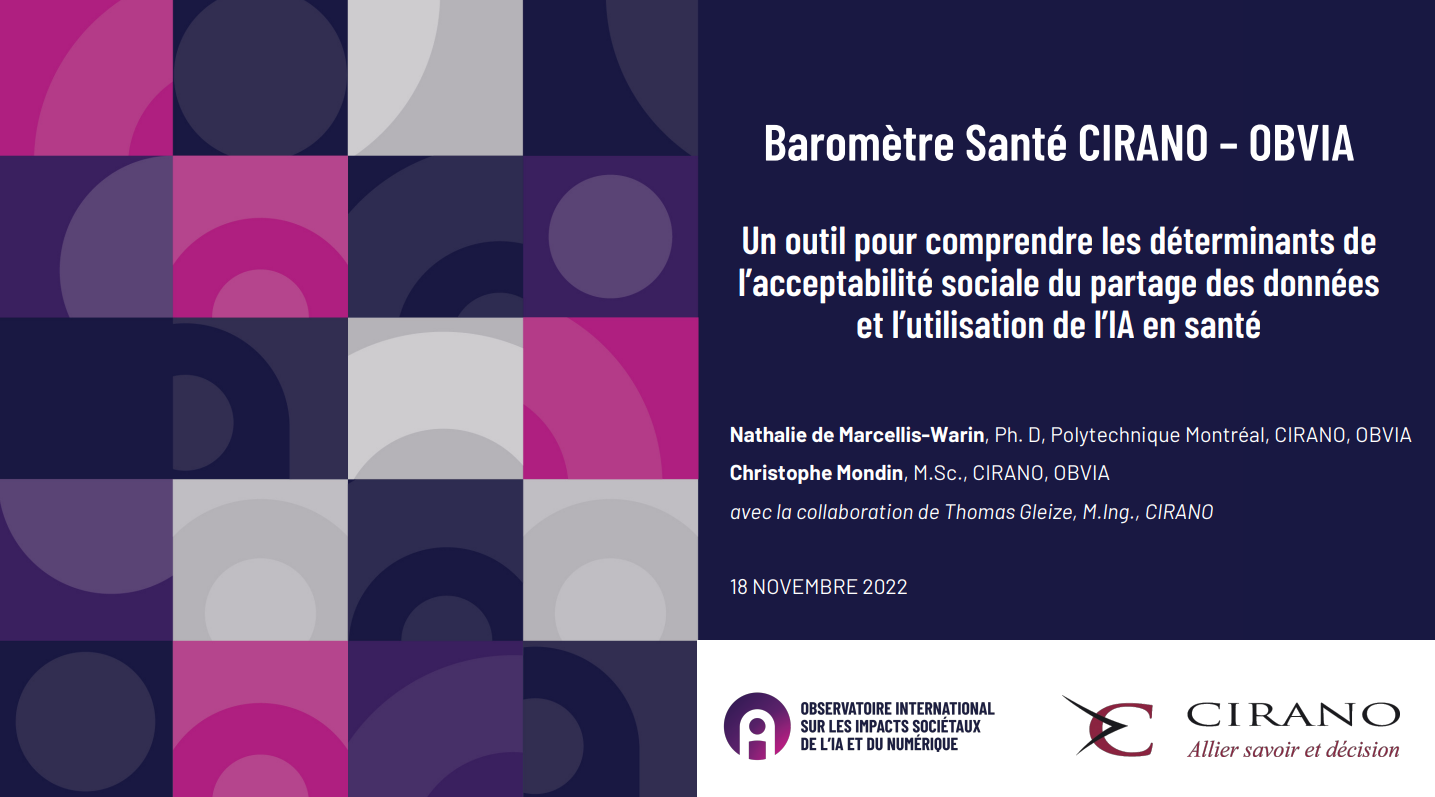© 2025 CIRANO. All rights reserved.
18 November 2022
CIRANO - OBVIA Barometer on the acceptability of data sharing in health
As part of the OBVIA's International Symposium on Digital Health Data, held on November 17 and 18, 2022 in Montreal, Nathalie De Marcellis-Warin, full professor at Polytechnique Montreal and CIRANO Fellow, and Christophe Mondin, Research Professional at CIRANO, presented the results* of the Barometer on the Acceptability of Health Data Sharing, in collaboration with OBVIA.
Some highlights:
- Quebecers say they are rather cautious about their information sharing habits but this seems inconsistent with their digital usage habits.
53% say they "never" or "very rarely" share their personal data, but 83% have a personal profile on one or more social networks and 80% of these have a way to identify themselves on their profile (photo, full name, telephone, etc.)
- For Quebecers, health data seems to be a common good that must be valued but also protected: its use offers benefits perceived by a majority of the population and that benefit everyone, but presents identified risks with significant impacts.
9 out of 10 respondents perceive as very strong the benefits that would impact issues related to health services. 53% of Quebecers consider the risk "possible" or "certain" that health data will be disclosed in the public space, mainly in relation to a security breach problem.
- Health professionals and university researchers are the actors that Quebecers trust the most to manage data-related issues, unlike GAFAM and digital SMEs. Healthcare professionals are also the primary source of information.
75% of Quebecers "trust" or "completely trust" health professionals (59% for university researchers), while only 18% of the population trust GAFAMs.
- Digital tools offer the opportunity to address the access to care issues that Quebecers are concerned about, but their deployment must be accompanied by education (knowledge and digital literacy) and better supervision (trust and protection). For example, the ease of use of a health application seems to take precedence over its effectiveness and over security and privacy considerations.
About the CIRANO - OBVIA Health Data Barometer
Data analysis of a survey conducted with a sample of 1005 respondents representative of the Quebec population to take the pulse of the Quebec population to understand their data sharing and digital usage habits and to analyze their perceptions of data sharing and AI usage in health. Descriptive statistics analyses are completed by significance tests on socio-demographic variables.

Christophe Mondin and Nathalie de Marcellis-Warin
